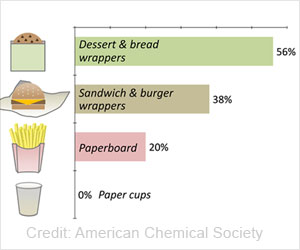There are complaints that the number fast food outlets have increased and there is reduced access to healthy food.

‘Living near fast-food restaurants which serve not-so-healthy foods or supermarkets which sell fresh fruits, vegetables has little impact on an individual's body mass index.’





The researchers, including Coady Wing from IU's School of Public and Environmental Affairs, used results from the largest national study ever conducted of the connection between residential environments and BMI. "Fast food is generally not good for you, and supermarkets do sell healthy food, but our results suggest blocking the opening of a new fast-food restaurant or subsidizing a local supermarket will do little to reduce obesity," Wing said.
The key findings and the policy implication:
- Changes in the availability of fast-food restaurants and supermarkets near a person's home are not associated with reductions in BMI.
- There is no evidence that relationships between BMI and food outlets are different in neighborhoods with higher poverty levels.
- Public policies that are designed to reduce the number of fast-food restaurants and increase the number of supermarkets are unlikely to reduce obesity, although such policies may make it easier for people to access healthy foods.
The researchers calculated BMI by using height and weight measurements taken when the veterans visited a doctor, nurse practitioner or other provider. They added up the number of chain fast-food restaurants, supermarkets and other food outlets within one mile and three miles of the person's residence.
With that information, the researchers could track BMI changes, even when a person moved from one area to another or when a fast-food or other outlet opened or closed.
Advertisement
"We couldn't find evidence to support policies based on that presumed link," Wing said.
Source-Eurekalert















